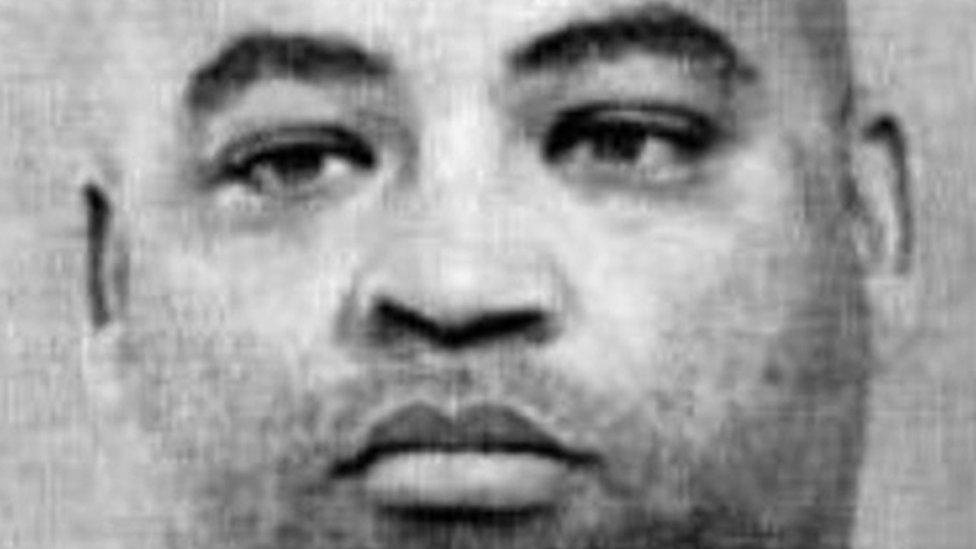Lisa Montgomery: Only woman on US federal death row to face execution
- Published

Lisa Montgomery is scheduled for execution in January 2021
A US appeals court has lifted a stay of execution on the only woman awaiting a federal death penalty.
Lisa Montgomery strangled a pregnant woman in Missouri before cutting out and kidnapping the baby in 2004.
If the execution goes ahead, she will be the first female federal inmate to be put to death in almost 70 years.
Montgomery's execution date was originally set for last month but a stay was put in place after her attorneys contracted Covid-19.
It was then rescheduled for 12 January by the Justice Department. But Montgomery's lawyers argued that the date could not be set while a stay was in place.
A court sided with her attorneys, stopping an order from the director of the Bureau of Prisons scheduling her death.
But on Friday, a panel of judges concluded that the director had acted under the law, external, allowing the execution to take place.
Montgomery's legal team said they will file a petition for the judges to reconsider their ruling, external.
The last woman to be executed by the US government was Bonnie Heady, who died in a gas chamber in Missouri in 1953, according to the Death Penalty Information Center.
Federal executions had been on pause for 17 years before President Donald Trump ordered them to resume earlier last year.
If the remaining executions go ahead, Mr Trump will have overseen the most executions by a US president in more than a century.
Montgomery's execution date is just days before President-elect Joe Biden takes office.
Mr Biden, who for decades was a fierce supporter of the death penalty as a Delaware senator, has now said he will seek to end federal executions once he takes office.
Who is Lisa Montgomery?
In December 2004, Montgomery drove from Kansas to the home of Bobbie Jo Stinnett, in Missouri, purportedly to purchase a puppy, according to a Department of Justice press release, external.
"Once inside the residence, Montgomery attacked and strangled Stinnett - who was eight months pregnant - until the victim lost consciousness," it says.
Montgomery cut into Stinnett's body to remove the baby, which she took with her in an attempt to pass it off as her own.
In 2007, a jury found Montgomery guilty of federal kidnapping resulting in death, and unanimously recommended a death sentence.
But Montgomery's lawyers say she experienced brain damage from beatings as a child and is mentally unwell, so should not face the death penalty.
Federal and state executions - what's the difference?
Under the US justice system, crimes can be tried either in federal courts, at a national level, or in state courts, at a regional level.
Certain crimes, such as counterfeiting currency or mail theft, are automatically tried at a federal level, as are cases in which the US is a party or those which involve constitutional violations.
The death penalty was outlawed at state and federal level by a 1972 Supreme Court decision that cancelled all existing death penalty statutes.
A 1976 Supreme Court decision allowed states to reinstate the death penalty and in 1988 the government passed legislation that made it available again at federal level.
According to data collected by the Death Penalty Information Center, 78 people were sentenced to death in federal cases between 1988 and 2018 but only three were executed.
Related topics
- Published11 December 2020

- Published12 December 2020
